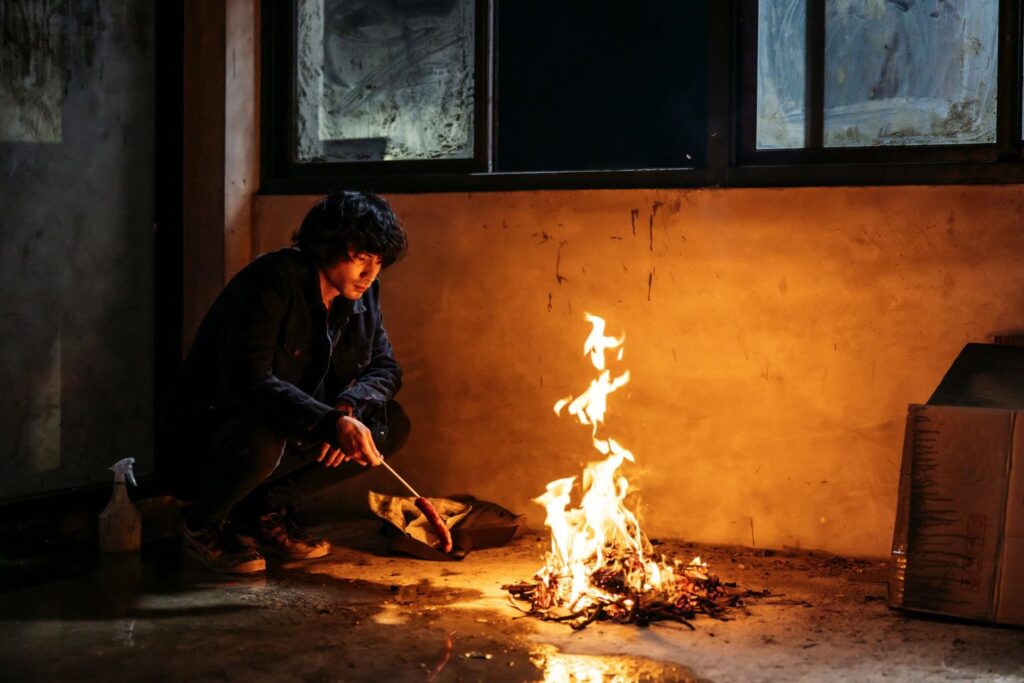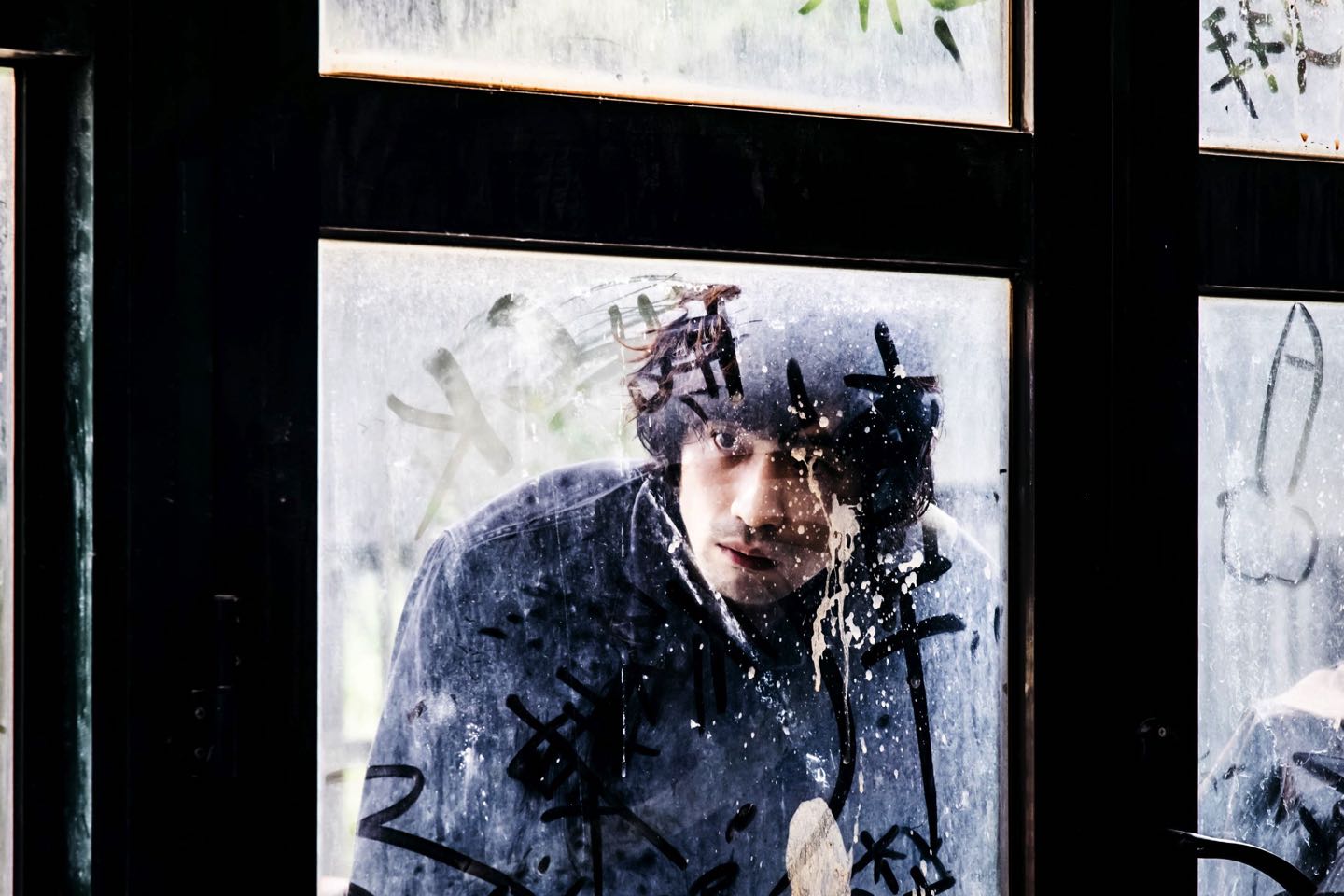by Brian Hioe
語言:
English
Photo Courtesy of Film Movement
This is a No Man is an Island film review written in collaboration with Cinema Escapist. Keep an eye out for more!
WANG YU-LIN’S In the Morning of La Petite Mort is an uneven but still highly accomplished film. The movie follows three individuals eking it out on the edges of contemporary Taiwan: a homeless food delivery driver, a sex worker he forms a connection with after repeated deliveries to her, and an elderly female cleaner who lives in the same abandoned building.
Much of the film follows the burgeoning relationship between the delivery driver and the sex worker, taking an atmospheric, meditative approach that cannot help but draw comparisons with Tsai Ming-liang’s Stray Dogs. The cleaner’s connection to the delivery driver protagonist is less clear, though it’s implied she has some sort of familiar or sexual attachment. However, the cleaner is at the center of the film’s second subplot, in which a building superintendent sexually harasses her.

Photo courtesy of Film Movement
Many of In the Morning of La Petite Mort’s shots are beautifully composed. While the interactions of the protagonists will seem glacially slow to some, this vests their exchanges with poetic significance, especially since the movie hardly contains dialog.
Even as the film hints at its protagonists’ background, this is mostly conveyed indirectly. It is shown early on that the main character is Japanese given his accent, though the movie only hints as to why he is in Taiwan, and why he has ended up living in a foreign country as a homeless person.
Still, if there is a weakness to In the Morning of La Petite Mort, it may be an unrealistic depiction of the working class. It is unclear why a delivery driver would be homeless, for example, when the profession likely makes enough to afford a rented, if shabby apartment. It also makes very little sense when the protagonist suddenly becomes a food stall owner, apparently obtaining a food stand without much financial issue. This apparent plot hole recurs later on in the movie when the protagonist then easily transitions to becoming a truck driver. Likewise, though Yusuke Fukichi’s performance as the protagonist is a strong one, he still always looks too much like a movie star to believably come across as a homeless person.

Photo courtesy of Film Movement
Moreover, the film’s conclusion is too reliant on deus ex machina. The movie’s calm philosophical reflection is disrupted when violent action intrudes, seemingly for no other reason except to suddenly advance the plot in a way that can lead to a conclusion. And this, too, may be reliant on ending the film with a sob story–perhaps evidencing a condescending view of the working class and homeless.
Ultimately, In the Morning of La Petite Mort may be a shallow copy of Tsai Ming-liang’s Stray Dogs, which made its protagonists’ poverty believable in a manner infused with cinematic beauty. Even if it doesn’t completely measure up to Stray Dogs though, In the Morning of La Petite Mort has its moments nonetheless, and still proves a strong entry among recent Taiwanese films.



